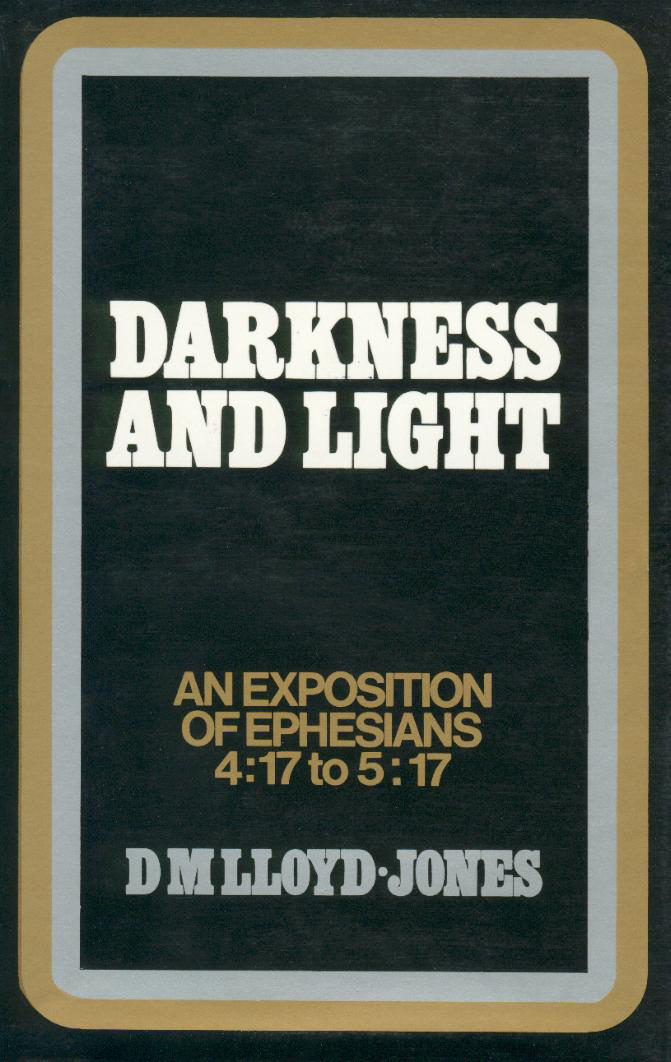Romans 12
Volume 12: Christian Conduct
| Weight | 0.73 kg |
|---|---|
| Dimensions | 22.3 × 14.3 × 3.3 cm |
| ISBN | 9780851517940 |
| format | Book |
| Binding | Cloth-bound |
| page-count | 528 |
| set | Romans |
| vol | 12 |
| scripture | Romans |
| Original Pub Date | 2000 |
| Banner Pub Date | Nov 1, 2000 |
Book Description
Romans 12 shows us Christian men and women living out the new life given to them in Christ in relationship with their fellows in the church, exercising the gifts they have received, wrestling with problems and opposition, but finally triumphing over all difficulties through the faith, hope and love that underlie all truly Christian conduct.
Table of Contents Expand ↓
| One | 1 | |
| A new section in the Epistle – the application of the doctrine – why this is important – analysis of the closing chapters of the Epistle | ||
| Two | 15 | |
| The opening verses – Paul’s manner of speech – motivations for Christian living – the main features of biblical sanctification | ||
| Three | 30 | |
| The appeal to mind and heart – sanctification a new kind of service – presenting our bodies – what is involved | ||
| Four | 44 | |
| Five reasons for offering our bodies to God – body and soul – sacrifices which are living, holy and acceptable | ||
| Five | 56 | |
| Reasonable service – what is it? – the spiritual over against the external, the legalistic and the ascetic – using our bodies to the glory of God | ||
| Six | 71 | |
| The soul and the world – worldliness in the church – evidences in theology, evangelism and morality | ||
| Seven | 84 | |
| Avoiding obscurantism and traditionalism – rigidity and laxity both wrong – not conforming to this world – fashion – moderation | ||
| Eight | 99 | |
| ‘Conformed’ and ‘transformed’ – realizing and being what we are – the renewing of the mind | ||
| Nine | 112 | |
| The renewing of the mind in practice – understanding and applying the truth – a new humanity – remembering what we are – pilgrims on the way to eternity | ||
| Ten | 127 | |
| The goal of Christian conduct – conforming to the will of God – knowing and approving His will – what is meant by ‘good, acceptable and perfect’ | ||
| Eleven | 142 | |
| The gifts of the Spirit in the church – humility – all of grace – Paul’s gracious authority – no hierarchy in the early church | ||
| Twelve | 156 | |
| Everything in the church owed to grace – every Christian receives some gift – the sovereignty of the Spirit – thinking realistically about our gifts | ||
| Thirteen | 168 | |
| The church as the body of Christ – an organic unity – variety in the parts – differing functions – each essential – none independent – each contributes to the whole – failure in one affects the whole body | ||
| Fourteen | 182 | |
| The church a spiritual society – a visible unity – a spiritual unity – unity the work of the Spirit – church-membership of children – unity not found by ignoring doctrine | ||
| Fifteen | 197 | |
| A living, functioning unity – activity dependent on Christ, the Head – opposite dangers of activism and introspection – church and state – entertainment in the church – members one of another | ||
| Sixteen | 211 | |
| Nature of spiritual gifts – coveting the best gifts – gifts cannot be ‘claimed’ or imparted by others – baptism with the Holy Spirit – gifts differ – the call to particular service | ||
| Seventeen | 226 | |
| Have certain gifts ceased? – the sovereignty of the Spirit – regular and unusual gifts – faith – knowing one’s particular gift – the nature of prophecy | ||
| Eighteen | 239 | |
| Prophesying according to the proportion of faith – two views – testing claims to prophecy – systematic theology – lessons from the Quakers and Edward Irving – the mystery of the Spirit’s working | ||
| Nineteen | 255 | |
| The other gifts mentioned – ministry – its varieties – teaching – exhortation – giving with simplicity – ruling – showing mercy | ||
| Twenty | 270 | |
| Gifts not mentioned in this chapter – the gift of prayer – how gifts are received – mediately or immediately – the church as a functioning body – the various offices | ||
| Twenty-one | 285 | |
| Churches self-governing, but not isolated – Acts 15 – the rise of bishops and the papacy – the church and the denominations since the Reformation – the New Testament pattern | ||
| Twenty-two | 301 | |
| Worship in the New Testament and today – liturgies – the regulative principle – the Lord’s Prayer – Roman Catholicism – the Prayer Book | ||
| Twenty-three | 317 | |
| Further aspects of worship in the New Testament – spontaneity versus liturgies – the freedom of the Spirit – revivals | ||
| Twenty-four | 331 | |
| A new subsection – analysis of verses 9 to 21 – love of God and our neighbour – love the fulfilling of the law of God – avoiding ‘dissimulation’ – abhorring evil, adhering to what is good | ||
| Twenty-five | 347 | |
| Brotherly love – feelings follow from the truth – our attitude of respect to our fellows – no place for pride – self the greatest enemy – the antidote to pride | ||
| Twenty-six | 362 | |
| Our attitude to our Christian calling – not mere busy-ness – causes of slothfulness – remedies, natural and spiritual – fanning the flame – prayer – arguments | ||
| Twenty-seven | 376 | |
| The ultimate antidote to slothfulness: we are serving the Lord – the cause not ours – God’s honour is involved – His eye is upon us – the hope of our calling – rejoicing in it | ||
| Twenty-eight | 392 | |
| Tribulation – our reaction to it – patient endurance – trouble to be expected – its benefits – prayer results from tribulation – being instant in prayer | ||
| Twenty-nine | 408 | |
| Fellowship with the necessity of the saints – real needs – who are saints? – pursuing hospitality – stewardship, not communism – caution against impostors – motives to generosity | ||
| Thirty | 426 | |
| Reacting to ill-treatment – forms of persecution – blessing enemies – patience with unbelievers – children of our Father in heaven | ||
| Thirty-one | 440 | |
| Reacting to the joy and sorrow of others – dealing with envy – having the same mind – avoiding intellectual pride and ambition – being carried along with humble things and people | ||
| Thirty-two | 455 | |
| The sin of intellectual pride – antidotes to pride – the folly and danger of being ‘puffed up’ – seeking true wisdom | ||
| Thirty-three | 470 | |
| Not retaliating when ill-treated – a sign of strength, not weakness – live at peace with all, but not peace at any price – declaring the truth – letting peace reign in our hearts | ||
| Thirty-four | 484 | |
| Never exact vengeance – refer all to the just judgement of God – God will ultimately vindicate himself – justice and personal revenge distinguished – the imprecatory psalms – the unity of Old Testament and New in declaring God’s judgement | ||
| Thirty-five | 499 | |
| Kindness to enemies to bring about repentance – not being defeated by evil – encouragements to persevere in the battle – how good overcomes evil |
Review
You may also like…

Romans
14 Volume Set
Description
The longest series of expositions preached in Westminster Chapel during Dr Lloyd-Jones’ 30-year ministry there was on this the greatest of the New Testament Epistles. 238–528pp.
More items to consider:

Authentic Christianity
Volume 2: Sermons on the Acts of the Apostles
Description
The longest series of expositions preached in Westminster Chapel during Dr Lloyd-Jones’ 30-year ministry there was on this the greatest of the New Testament Epistles. 238–528pp.

Romans 11
Volume 11: To Gods Glory
Description
The longest series of expositions preached in Westminster Chapel during Dr Lloyd-Jones’ 30-year ministry there was on this the greatest of the New Testament Epistles. 238–528pp.

Ephesians
Volume 5: Darkness and Light (4:17-5:17)
Description
The longest series of expositions preached in Westminster Chapel during Dr Lloyd-Jones’ 30-year ministry there was on this the greatest of the New Testament Epistles. 238–528pp.


Martijn de Groot –
From beginning to the end full of glorious content! Wonderful how Dr. Martyn Lloyd-Jones starts this volume. He asks the reader whether he likes it that we have arrived at the practical part of the epistle to the Romans. In chapters 1 to 11 Paul dealt with doctrine, now is conduct the theme. He compares this change with the experience of Peter, James and John after Jesus’ transfiguration on the mount. They descended to the plain life again. So we come to the everyday conduct of the Christian. Besides this I found it very clarifying what Lloyd-Jones says about the life in the church, the whole question of the gifts.